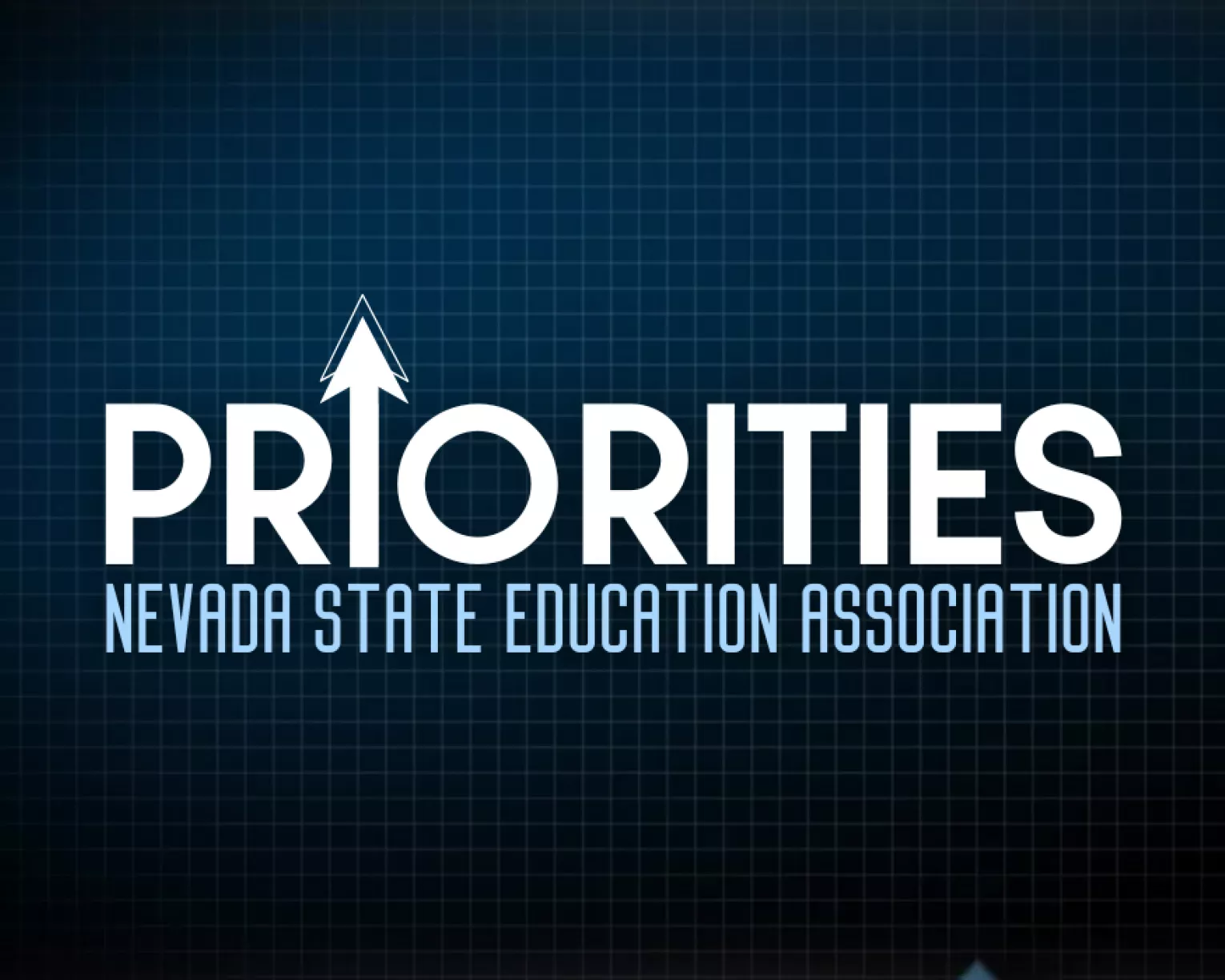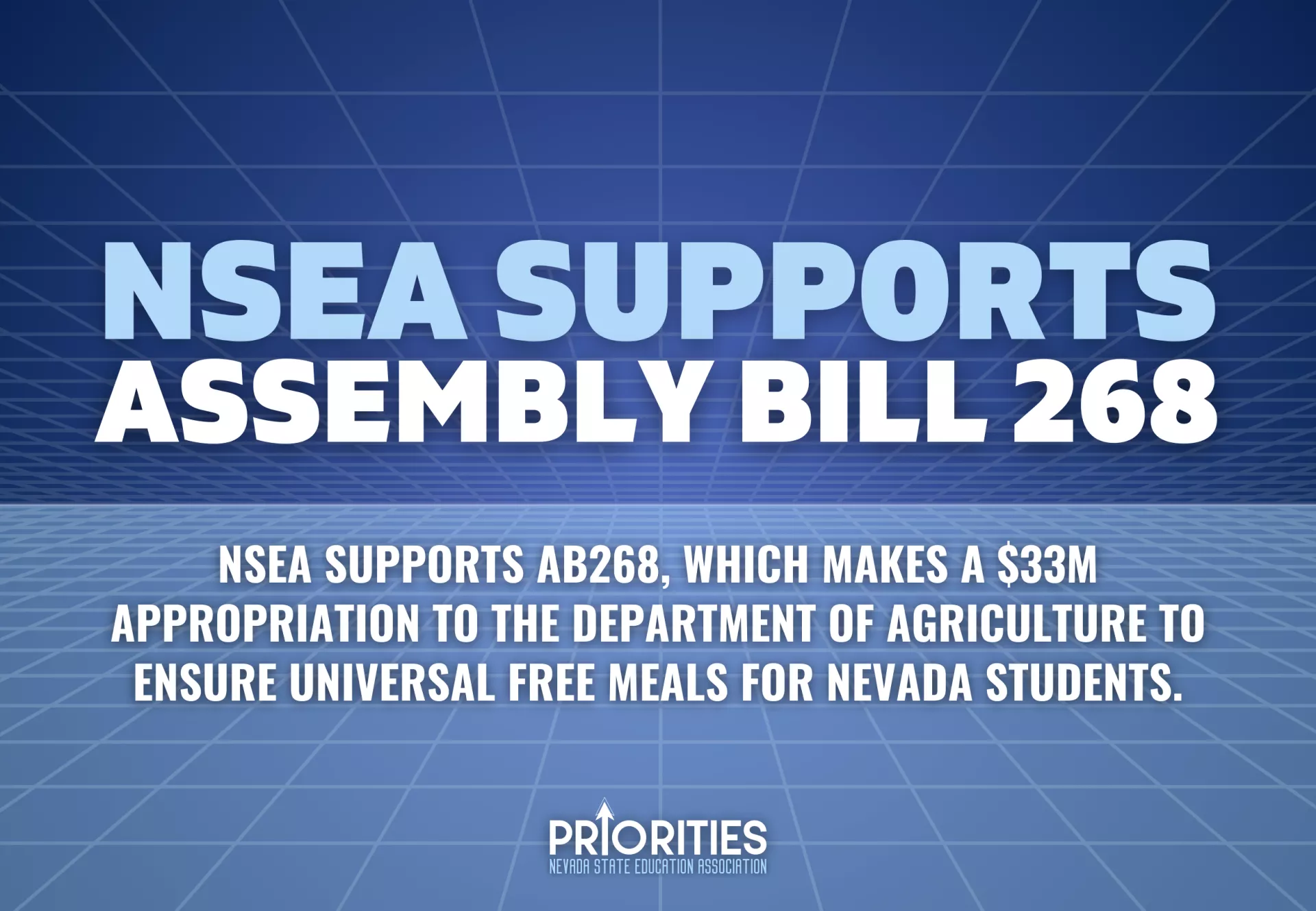NSEA supported AB319 last session, and we were incredibly disappointed with the Governor’s veto. In his veto message, Governor Lombardo referenced the bill’s cost, pointing out school districts had sufficient resources to address the issue of meals. Making this point, he referenced SB231 funds, even though those dollars were specifically for educator raises. Also, just a day later, the Governor signed SB1, to award $380M in public funding to a California billionaire.
Now with proposed cuts to school districts in the Governor’s $2 education budget, the provision of free, nutritious meals for all students should be a no-brainer.
Assembly Member Backus referenced the director of nutrition services here in Carson. Her name is Elizabeth Martinez, an NSEA and CESA member who said having universal school meals for the last three academic years “has been transformative” for the entire school community. In a piece for NEA Today magazine she wrote: The income limits to qualify for free and reduced-price meals are unrealistic, and we need leaders who understand that.
She's right, and here's why:
School meals support learning. Students who participate in school meals programs have improved attendance, behavior, academic performance, and achievement. Research has clearly demonstrated the link between school meals and student success, which is especially important now as schools and educators continue to combat the loss of learning opportunity during the COVID-19 pandemic.
School meals promote healthy eating habits. Students who participate in the school meal program consume breakfasts and lunches of higher nutritional quality and are more likely to eat fruits and vegetables.
School meals improve health outcomes. Participation in the school breakfast program is associated with lower body mass index, lower probability of being overweight, and a lower likelihood of obesity.
Providing school meals for all improves efficiency. School meals cost less per student when more students participate in a free meal program. One study found that schools that participated in a universal meal program spent 67 and 58 cents less per lunch and breakfast, respectively, while maintaining the same nutritional quality.
Providing school meals for all keeps the focus on nutrition and students. Free meals for all students means food service workers can focus exclusively on preparing and serving healthy and nutritious meals to our students, without having to worry about unpaid meal debt collection and burdensome paperwork.
We know these programs work. We hear a lot about the proper use of tax dollars; keeping kids fed is a great use of those dollars. Please support AB268.
What's On Your Mind?

